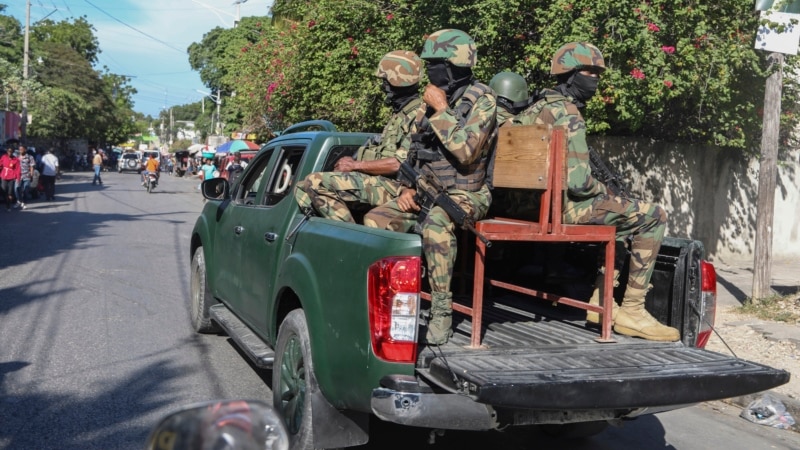United Nations — The head of the United Nations children's agency said Monday that children make up about half of all armed gang members in Haiti and called for their enhanced protection.
"We estimate that children account for up to 50% of armed group members, while the total number of children recruited by armed groups has jumped by 70% over the past year," UNICEF Executive Director Catherine Russell told a U.N. meeting on the situation of children in Haiti. "They are being used as informants, cooks and sex slaves, and they are being forced to perpetrate violence themselves."
She said that gangs regularly kill and maim children, and that reported incidents of sexual violence against minors has skyrocketed this year by 1,000%.
Haiti has been rocked by instability since 2021, when President Jovenel Moise was assassinated. Heavily armed gangs have sought to fill the vacuum, seizing up to 85% of the capital, Port-au-Prince, and expanding their violent grip to some areas beyond it.
The violence has caused a catastrophic humanitarian crisis, displacing more than 700,000 people — of whom the U.N. says about half are children. A record 5.4 million Haitians are facing acute hunger. The World Food Program says faminelike conditions are present, particularly in shelters for the displaced in Port-au-Prince. Children are particularly vulnerable, and at least 125,000 are estimated to be acutely malnourished.
"Why is it easier for a young person to get a gun than it is to get food? That is the defining question of the moment," said Inga King, ambassador of Saint Vincent and the Grenadines, speaking on behalf of Caricom, the bloc of Caribbean countries.
"The protection of children must not be an option; it must be an absolute priority," said Jean Jean Roosevelt, a Haitian musician and UNICEF goodwill ambassador. Roosevelt, who works to prevent youth from being recruited by gangs, performed a song called "Watch Out Children" at the U.N. Monday.
Speaking to reporters after the meeting, Canadian Ambassador Bob Rae emphasized the importance of stabilizing the country.
"If you don't have security, you don't have other things that are required to get us to peace, development and human rights," Rae said.
In June, a multinational security support mission, or MSS as it is known, began its first deployment of about 400 police from Kenya, which is also leading the mission. Jamaica and Belize have also sent some police to assist the embattled Haitian National Police in subduing the gangs. The mission has been beset with delays and financial and equipment shortages, and despite its presence, violence has recently dramatically escalated.
Rae said, without giving specifics on numbers or timing, that more police and equipment would be coming to the MSS.
In the meantime, Haiti's transitional government has asked the United Nations Security Council to consider turning the non-U.N. force into a U.N. peacekeeping mission, an option U.N. Secretary-General Antonio Guterres has been clear should be one of last resort.
To transform the mission would take months and need the 15-nation Security Council's authorization. The United States and Ecuador are working on a draft council resolution that would ask Guterres to begin looking at preparing a peacekeeping operation.
U.S. Ambassador Linda Thomas-Greenfield said Monday that the negotiations were continuing and that "they are not easy," because some council members were not on board with the idea.
"But this is what the Haitian people have asked for," she told reporters.


